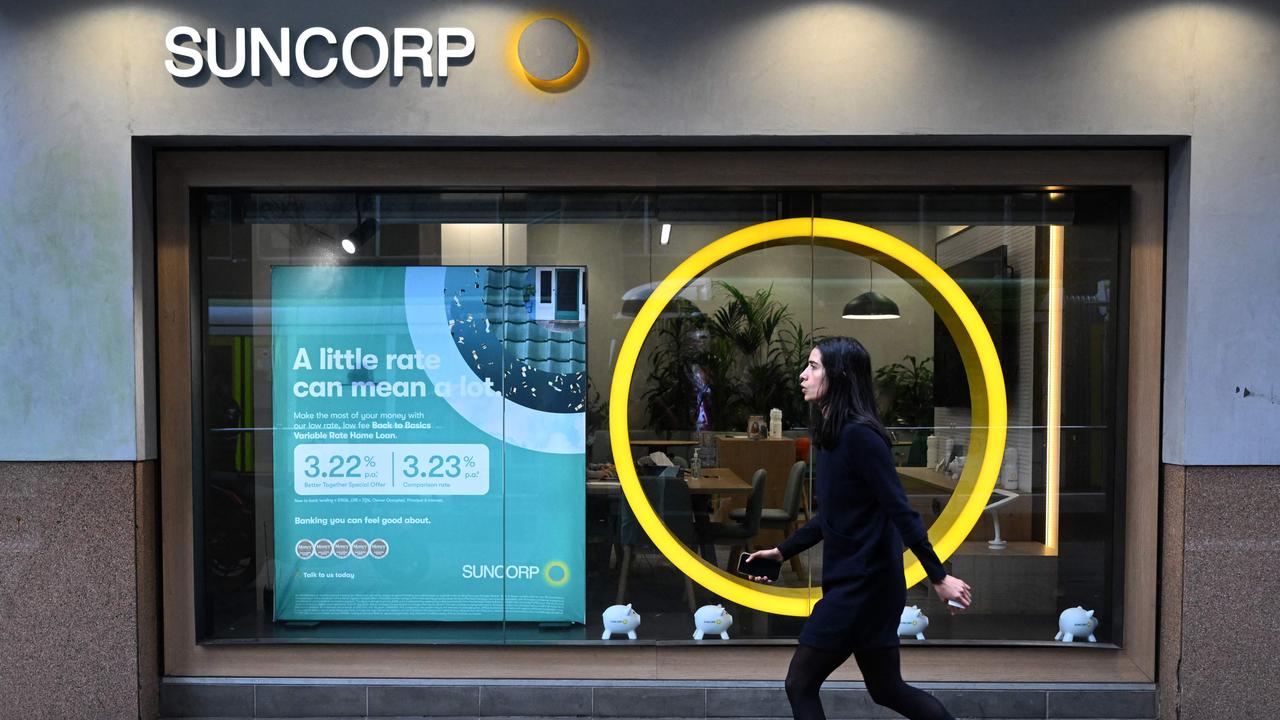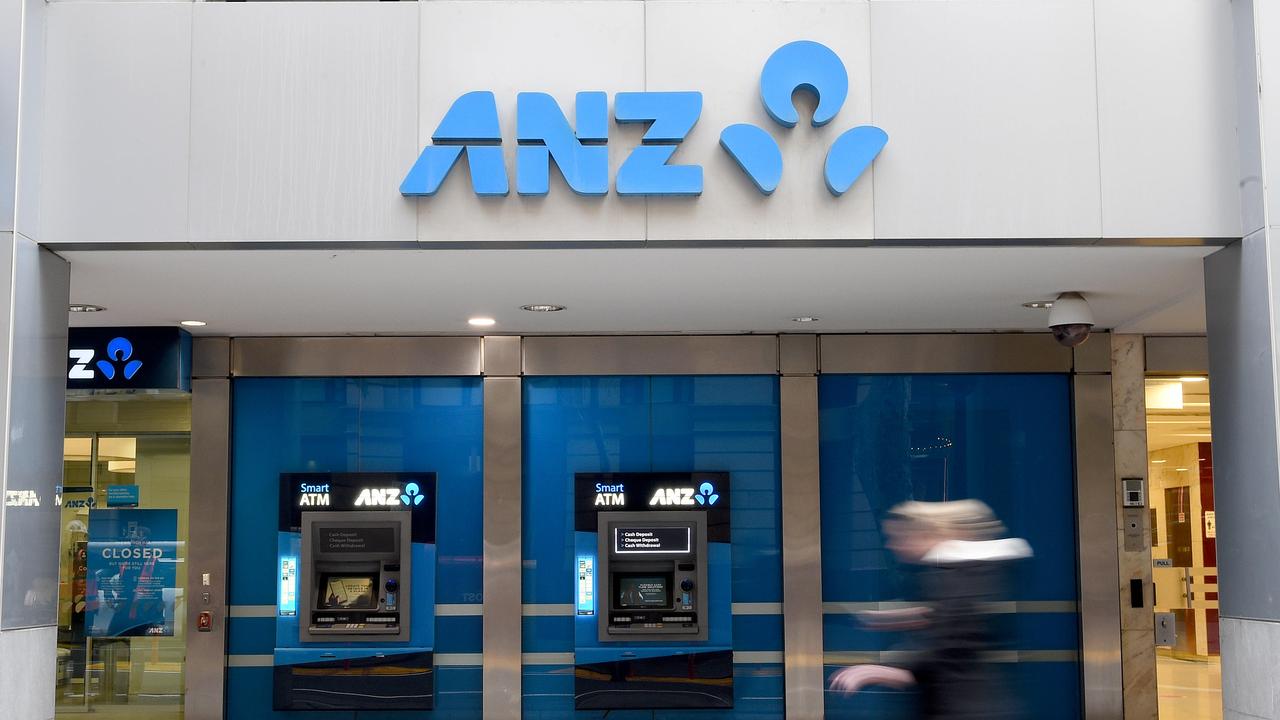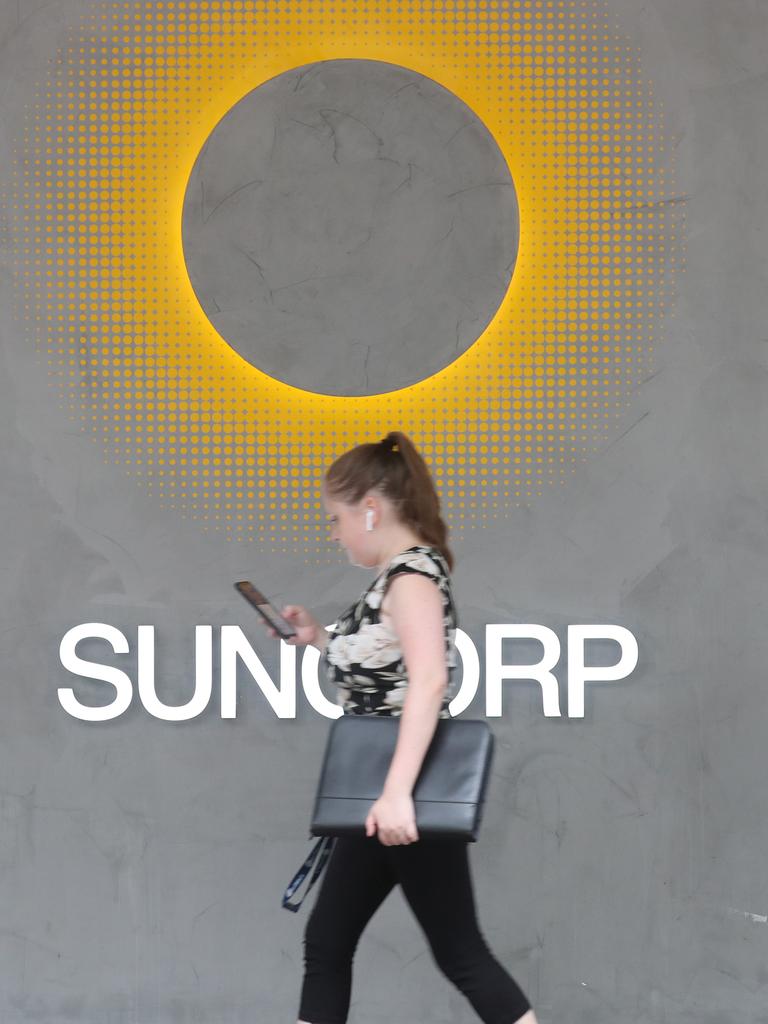Suncorp chief maps out the risks of selling its banking facility to a smaller rival
As the regulator weighs up a deal with ANZ, Brisbane-based lender Suncorp has spelt out why a sale to a regional bank would ultimately hurt competition.

Business
Don't miss out on the headlines from Business. Followed categories will be added to My News.
The sale of Suncorp’s banking arm to a regional rival would require heavy job cuts and branch closures in order to make any deal stack up commercially, according to internal analysis compiled by the Brisbane-based financial services operator.
Indeed Suncorp expects cost savings of between 35-40 per cent would be needed in order to make a return on such a deal to create a “super-regional bank” with much of the losses likely in Queensland where Suncorp is based. This would significantly undermine any competitive benefits from bulking up a smaller bank, it argues.
The confidential numbers were supplied as part of submission by Suncorp chief executive Steve Johnston to the competition regulator as it works through the issues of a $4.9bn sale of the Brisbane-based bank to ANZ. A bigger player has lower hurdles for returns and can spread the cost of any transaction across a bigger customer base. Until now Suncorp has been reluctant to discuss why it has been cool toward a merger with Bendigo and Adelaide Bank which has also made repeated approaches to bulk up through a Suncorp deal.

Johnston’s submission seeks to head off a “counterfactual” of a Bendigo deal or even a merger with Bank of Queensland, given the ACCC is likely to test all options around the ANZ sale.
The ACCC’s ruling on the Suncorp sale will set the tone for future bank mergers. The deal comes amid a backdrop of a fast-changing market with smartphone payments technology, new fintech entrants and mortgage brokers up-ending the traditional banking model. However with banks closing branches particularly through the Covid-19 pandemic, the competitive impact of the deal is expected to face additional scrutiny.
Johnston revealed in his submission Bendigo had made a renewed approach to buy the bank three weeks after the ANZ deal had been entered into. And while Suncorp is limited through an exclusivity deal with ANZ, any deal with Bendigo simply wouldn’t stack up on Suncorp’s own numbers given the high level of cost savings needed to make a merger viable. This includes the need for as many as 55 branch closures to eliminate duplication on Suncorp’s estimates. At the same time there would be significant technology risks with Bendigo operating seven different banking platforms while Suncorp has two would add to integration costs. Bendigo has a lending book of $75bn, ahead of Suncorp’s $65bn book.

ANZ has committed to retaining Suncorp’s branch network for at least three years and has said the acquisition would not result in any net job losses in Queensland. It also signed a long term deal to keep the “Suncorp” brand.
Bendigo’s managing director Marnie Baker recently hit out at the ANZ-Suncorp deal saying it would be a blow to competition. At the time she said it will “further entrench Australia’s banking oligopoly” and this will lead to poor outcomes for customers. Bendigo is expected to make its own submission to the ACCC where it will strongly argue against the planned deal moving ahead. The ACCC’s deadline for submissions closes on Wednesday.
Pure play push
While the pressure is on ANZ to win over the ACCC, Suncorp’s Johnston outlines his prime motivation for the sale, with the financial services company seeking to evolve into a pure play insurer by putting more focus on its existing brands, including AAMI, GIO and commercial insurance arm Vero.
It’s an unusual test, but here Johnston is urging the sale of Suncorp’s bank shouldn’t be considered in isolation of the banking industry. He argues that an exit from banking will mean Suncorp can be a better insurer pouring more funds into the unit. Parts of the insurance markets in Australia are more concentrated than banking, particularly for customers in northern Australia.
“The group has finite capital resources and currently it needs to allocate those finite capital resources and make capital investment decisions for two capital intensive businesses, the insurance business and Suncorp Bank,” Johnston says in his submission.
“Divesting Suncorp will allow (a) program of digitisation and automation including its program to deliver a modernised technology platform, including new pricing engines and modern, cloud-based policy administrations and claims systems,” he says of the insurance business.

This investment will allow Suncorp to develop more competitive insurance product offerings and improve the speed of claims processing, he adds.
Significantly, Johnston also raises the prospect of “funding risk” for its bank if it instead moved ahead with a sale to a smaller bank.
Indeed Suncorp is understood to have been told by some of its long term money market investors they wouldn’t be able to continue to provide funding to the bank if it pushed ahead with a merger with a regional bank, a move that could push up costs for borrowers. Large debt investors often have limits in place around supporting lenders with credit rating below “A”. A higher credit rating allows banks to attract lower funding costs.
Suncorp’s Bank is rated “AA-” given the strength of the company’s insurance business, although it was downgraded to “A+” when the sale was announced. Both Bendigo and Bank of Queensland have a credit rating of “BBB+” from S&P. Suncorp has a larger reliance on funding markets than Bendigo with the appetite likely to continue under a new owner.
“I believe Suncorp Bank’s access to wholesale deposits and ability to source funding from global markets would be significantly diminished and would negatively impact Suncorp Bank’s competitiveness,” Johnston says in his submission.
Suncorp’s board has previously undertaken a review, looking at options for the bank.
These include a demerger, which is the least preferred path; other options include a trade sale to a regional bank; a sale to a big four bank; or continuing to hold and operate the business. If the ANZ sale is ultimately knocked back, it is understood that Suncorp intends to continue to operate the bank.
The competition regulator has approved several major bank deals in the past 15 years, including the sale of St George Bank to Westpac in 2007 and a separate competition assessment gave approval for the sale of Bankwest to Commonwealth Bank. Although the Bankwest approval was given retrospectively given the lender’s UK parent had become financially crippled during the global financial crisis.
More recently the ACCC gave the green light to National Australia Bank buying out Citigroup’s Australian consumer business for $1.2bn. Although Citigroup had a significantly smaller banking footprint than Suncorp.
ACCC’s ultimate test
The test for the ACCC is that it must be satisfied that either the transaction will not be likely to substantially lessen competition, or that the public benefits of a deal outweigh the public detriments.
The addition of Suncorp would lift ANZ’s share of the national lending market from a little over 13 per cent to 15.4 per cent, although this trails CBA and Westpac that both are above 21 per cent and marginally exceeds NAB’s 14.9 per cent.

In making its decision, the ACCC will also consider if Suncorp is price leader or innovator in the national banking market, particularly as it competes against ANZ.
A decision last month by the ACCC to block a mobile infrastructure sharing arrangement between telco major Telstra and TPG/Vodafone is seen by some analysts as having implications for the ANZ deal – despite it covering an entirely separate industry.
As part of its Telstra decision, the ACCC’s preferred course of action was for TPG/Vodafone to strike a similar mobile infrastructure deal with second-ranked player Optus to re-tilt the competitive scales of the market.
TPG has said such a deal with Optus is unlikely to happen in the foreseeable future. Both Telstra and TPG are in the process of appealing the ACCC’s decision.
In its submission ANZ says the markets it operates in are intensely competitive and are characterised by the prospect of new entrants. Customers are also motivated by choice, expect innovation and have the ability to easily switch providers, ANZ says.
“While the acquisition will allow ANZ to grow in Queensland where it has a smaller presence and acquire scale to compete better, it will not materially alter ANZ’s market share or significantly increase concentration in any market,” the ANZ submission says.
A decision on the sale is not expected until mid-June. Treasurer Jim Chalmers, whose electorate is based in Brisbane’s suburbs, has final approval of the deal.
johnstone@theaustralian.com.au
Originally published as Suncorp chief maps out the risks of selling its banking facility to a smaller rival







